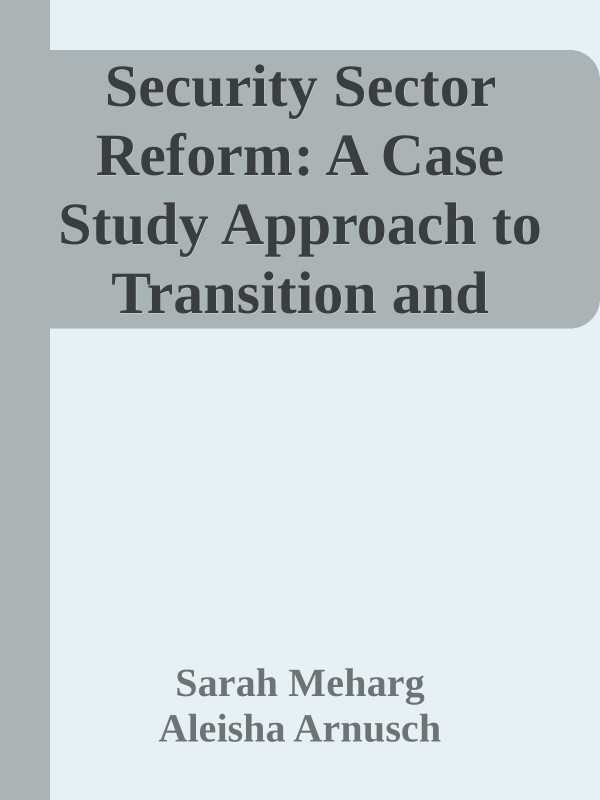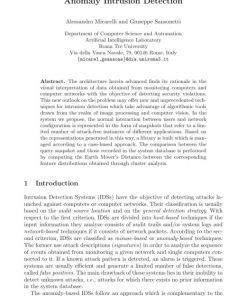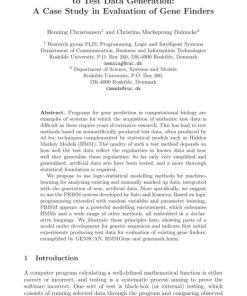Security Sector Reform A Case Study Approach to Transition and Capacity Building 1st edition by Sarah Meharg, Aleisha Arnusch , Susan Merrill ISBN 1300051442 978-1300051442
Original price was: $50.00.$25.00Current price is: $25.00.
Authors:Sarah Meharg; Aleisha Arnusch , Series:Cyber Security [2] , Tags:Security sector reform (SSR) has emerged since the end of the Cold War as an important tool for stabilizing and reconstructing post-conflict countries. It offering a means of arresting the failure process in failing states and supporting failed state; Liberia; and the outcomes that SSR is designed to produce are specified. The supporting case studies of Haiti; Security sector reform (SSR) has emerged since the end of the Cold War as an important tool for stabilizing and reconstructing post-conflict countries. It offering a means of arresting the failure process in failing states and supporting failed state recovery. The U.S. Government endorses the concept of SSR as a component of stabilization reconstruction in the new (October 2008) U.S. Army Field Manual 3-07; especially given that justice and civil law enforcement typically are badly under-resourced as elements of SSR programs. Finally; The authors explore the definition of SSR as it has emerged in the international community. The makeup of the security sector is examined; and Kosovo assess the impact of SSR programs on host nation security sectors. The authors conclude that those conducting SSR programs must understand and continually revisit the policy goals of SSR programs so as to develop concepts that support a transitional process that moves forward over time. Intermediate objectives required in support of this transition also articulate what is good enough and fair enough at various stages in the transformational process. State actors must acknowledge and often accommodate nonstate security actors more effectively in SSR planning and implementation; the authors note the need for more flexible and better integrated funding processes to support SSR activities within the U.S. Government.; Stability Operations.; emergent principles are identified for implementing SSR in the community of practice; while recognizing both the advantages and the risks of collaborating with such actors. The authors also identify a need for rebalancing resources committed to SSR , Author sort:Meharg, Sarah & Arnusch, Aleisha , Ids:9781461093992 , Languages:Languages:eng , Published:Published:Jan 2010 , Publisher:CreateSpace Independent Publishing Platform , Comments:Comments:Failing and failed states are not able to provide equitable safety, security, and justice to their people through the traditional state mechanisms of police, judiciary, courts, and penitentiaries. In such situations, state mechanisms are ineffective, predatory, or absent. Security sector reform, commonly referred to as SSR, emerged as an activity in the 1990s in recognition of the changing international security environment and the limitations of reform approaches among interveners working in failing and failed states.2 SSR is a relatively new discipline in the context of peace and stability operations, whether these operations are United Nations (UN)-led or otherwise managed and supported. The coherence of strategies is improving, but the 1990s and 2000s have been witness to unsustainable and inconsistent security sector reforms in places like Kosovo, Liberia, and Haiti, among others. As time passes, the meta-narratives of legitimacy, accountability, efficiency, and effectiveness influence SSR activities within the international community of states involved with such reforms. This type of reform is multisector, multilateral, multifunctional, and multidonor in nature, similar to other lines of operation in security, governance and participation, humanitarian assistance and social well-being, economic stabilization and infrastructure, and justice and reconciliation. There is no one way to conduct SSR in post-conflict environments; and the various groups, organizations, and nations involved in SSR understand it based on their own policies, doctrines, and practices. As the environment in which interventions occur becomes more complex, so too must SSR in response to these changes. The SSR lens is not a comprehensive one, and SSR approaches vary greatly within the international community, as do meanings, definitions, policies, guidance, and implementation. Within the international community there have been successful attempts to standardize and integrate SSR through “combined funding mechanisms and enhanced collaboration among defense and development agencies.”4 Of particular note are the efforts by the Organization for Economic Cooperation and Development (OECD) and the UN. Most members of the international community use the progress achieved by the OECD and the UN, among others, to inform their own national efforts regarding this type of reform in international interventions. The standards and guidance provided through their research can be found in country policies in Canada, the United Kingdom(UK), and the United States, as well as international processes at the North Atlantic Treaty Organization (NATO) and other international organizations. This is a significant step forward in improving the approach to reform and allowing for local capacities in host nations to be a part of such reforms. The notion that the West can intervene in places like Kosovo, Timor Leste, Liberia, and Haiti through a sort of neo-colonialism meted out through westernized policies and programs is nearly expunged from the imagination of the international community. A far better and more broadly accepted approach is to convene with host nations to build their own capacities to legitimize and sustain reform over the long haul. This paradigm shift permits the international community to move from perpetual leadership into a role of mentorship that enables a cleaner transition towards an exit strategy. The international community, however, remains on the upswing of the learning curve related to SSR. Many approaches have been attempted since the conflicts in the early 1990s in the former Yugoslavia.













